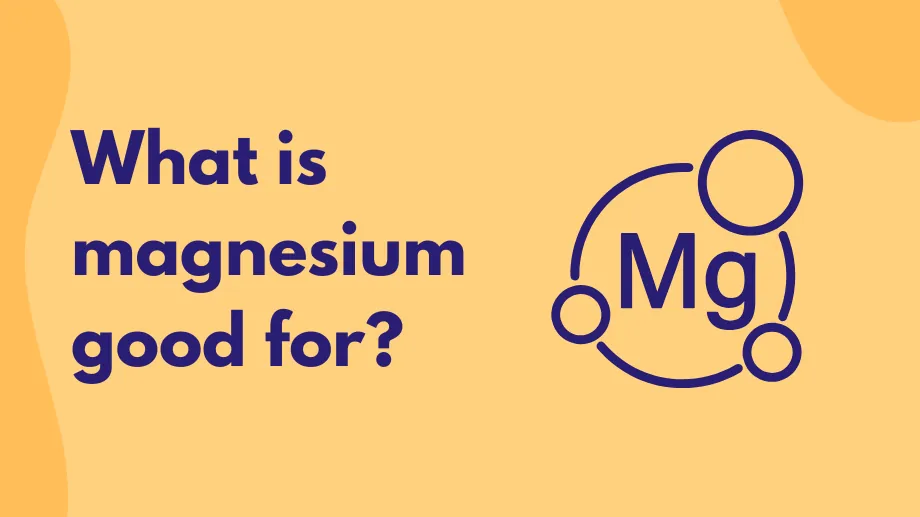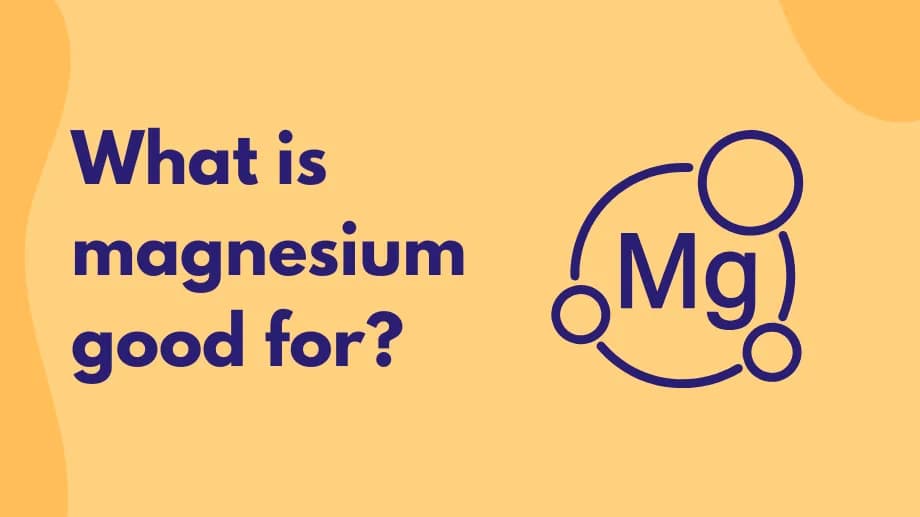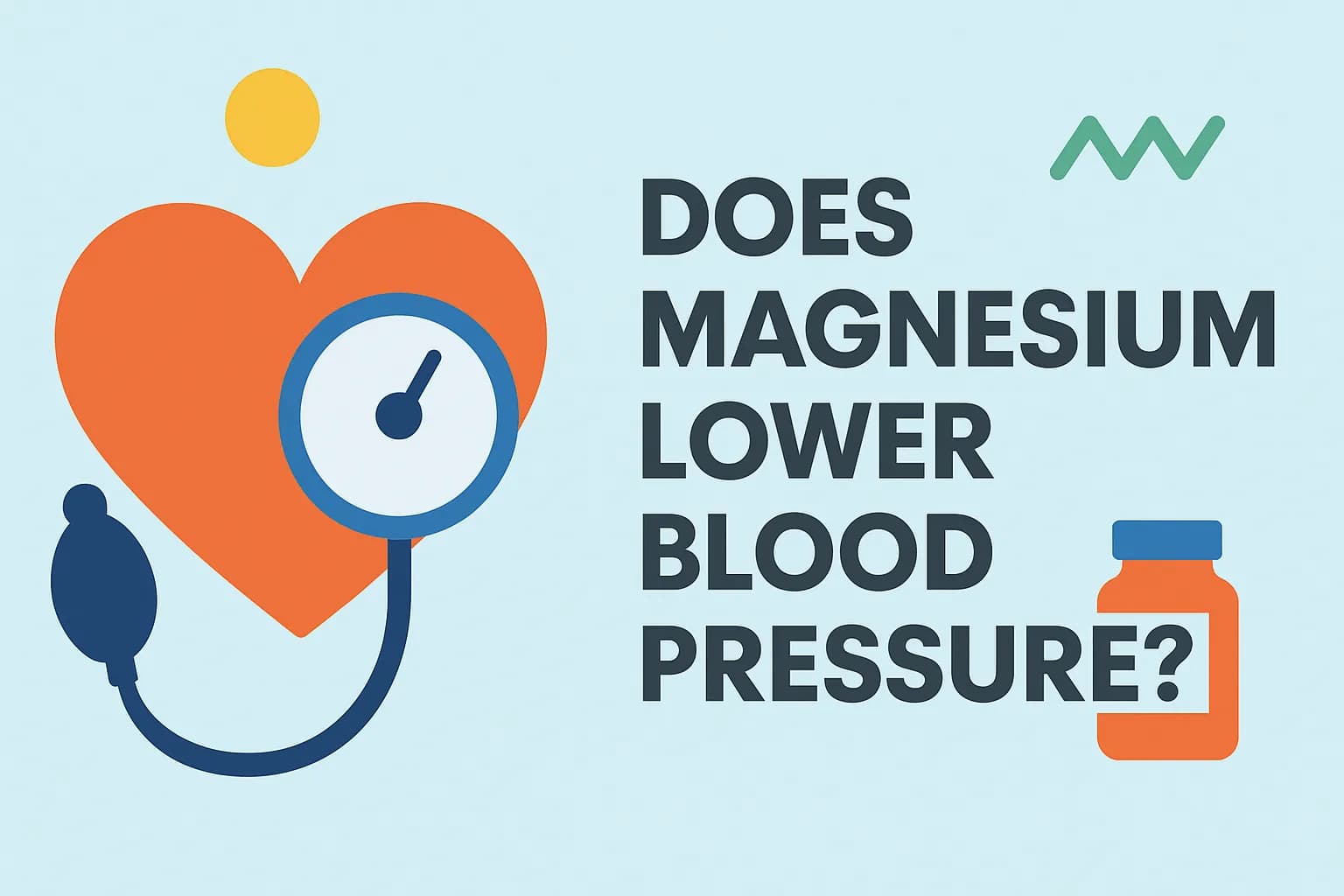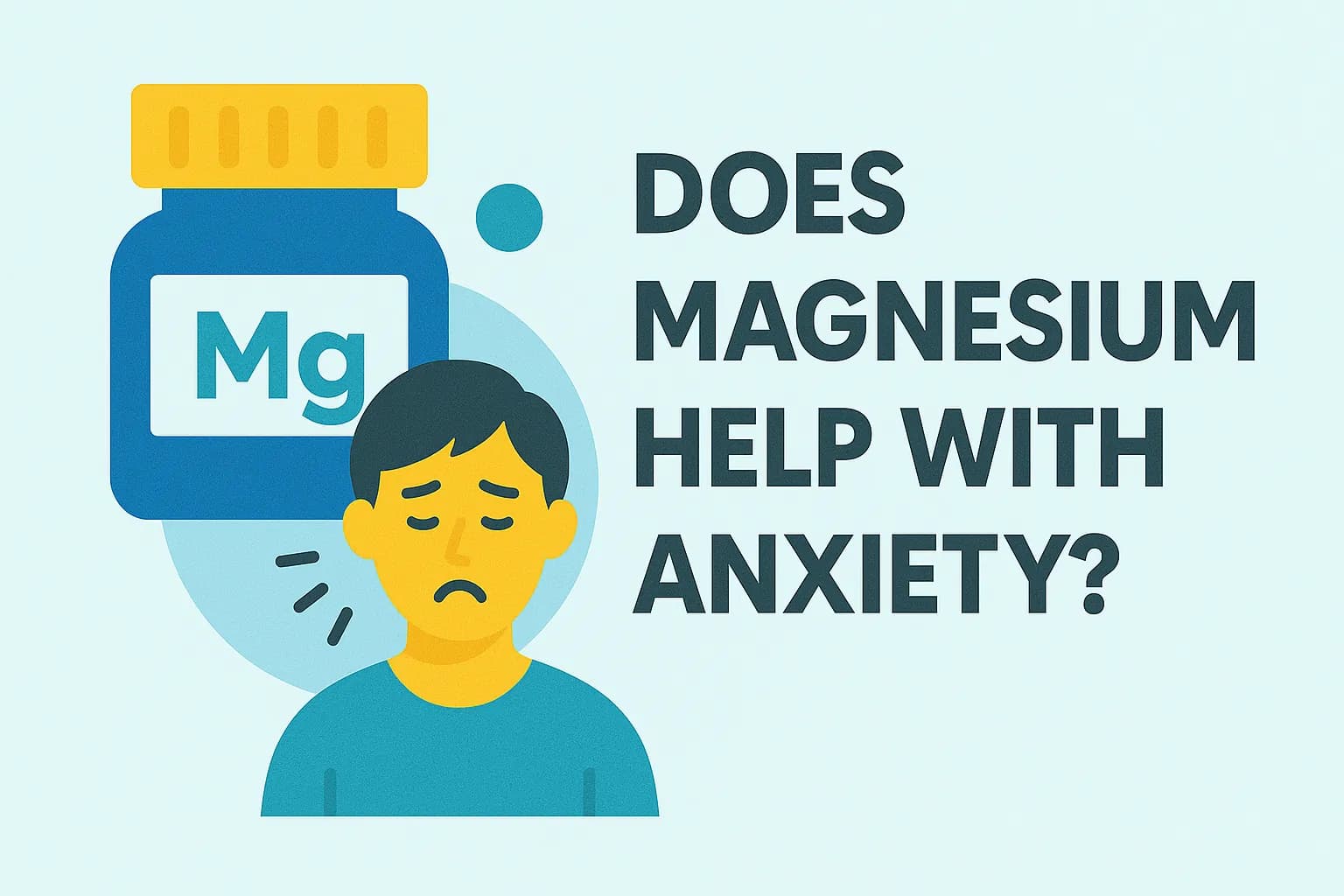What is magnesium good for?

Magnesium is a key part of many of your body’s functions, including those involved in energy production, heart health, brain function, and muscle contraction. Although it is found in foods ranging from green leafy vegetables to nuts, seeds, and beans, most people in the United States do not get enough magnesium in their diet.
While a minor magnesium deficiency might not cause problems, severely low magnesium levels may be involved in various health conditions, such as type 2 diabetes (T2DM), osteoporosis, heart disease, and migraine headaches.
In this blog, we will look at the various forms of magnesium, their uses, and possible health risks linked to too much of this essential mineral.
Health benefits of magnesium
Magnesium is found in every cell in your body. About 60% of it is in your bones, while the rest is in muscles, soft tissues, and fluids, including your blood. It is essential to many functions of your body so it is important that you consume the recommended daily amount of magnesium through foods or dietary supplements. Some of the benefits of magnesium include:
- Increased exercise performance: helps move blood sugar into muscles and clear lactate, reducing fatigue. Supplements may benefit older adults or those who are deficient.
- Help with depression and anxiety: stress can deplete magnesium; supplementing may improve mood and reduce depressive symptoms.
- Improved blood sugar levels: linked to lower risk of type 2 diabetes; nearly half of people with T2DM have low magnesium levels.
- Better heart health: may lower high blood pressure and reduce stroke risk; used in heart failure to prevent arrhythmias.
- Bone health: supports bone density and regulates calcium, potassium, and vitamin D levels.
- Preventing migraines: high oral doses may prevent or relieve migraine headaches; deficiency is more common in sufferers.
- Improved PMS symptoms: with vitamin B6, can reduce mood and physical PMS symptoms.
- Better sleep: regulates the brain chemical GABA, improving sleep quality and duration.
Foods high in magnesium
Leafy greens, legumes, nuts, seeds, and whole grains are rich sources. Examples:
- Pumpkin seeds, roasted, 1 oz (37% DV)
- Chia seeds, 1 oz (26% DV)
- Almonds, dry roasted, 1 oz (19% DV)
- Spinach, boiled, ½ cup (19% DV)
- Cashews, dry roasted, 1 oz (18% DV)
- Peanuts, oil roasted, ¼ cup (15% DV)
- Cereal, shredded wheat, 2 large biscuits (15% DV)
- Soymilk, plain or vanilla, 1 cup (15% DV)
- Dark chocolate, 1 oz (15% DV)
- Black beans, cooked, ½ cup (14% DV)
- Edamame, shelled, cooked, ½ cup (12% DV)
- Peanut butter, smooth, 2 Tbsp (12% DV)
- Potato, baked with skin, 3.5 oz (10% DV)
- Rice, brown, cooked, ½ cup (10% DV)
- Yogurt, plain, low fat, 8 oz (10% DV)
- Fortified breakfast cereals, 1 serving (10% DV)
- Oatmeal, instant, 1 packet (9% DV)
- Kidney beans, canned, ½ cup (8% DV)
- Banana, 1 medium (8% DV)
Types of magnesium supplements
- Magnesium citrate: used orally to raise levels; also acts as a laxative.
- Magnesium oxide: treats constipation and indigestion; lower absorption.
- Magnesium chloride: well absorbed; used orally or topically for muscle relief.
- Magnesium sulfate: known as Epsom salt for bath soaks.
- Magnesium glycinate: may calm anxiety and support sleep.
- Magnesium lactate: used as a food additive; not common as a supplement.
- Magnesium malate: easy absorption; may aid chronic fatigue.
- Magnesium taurate: limited evidence for blood pressure support; not a substitute for heart medications.
Recommended daily intake
General guidelines for adults:
- Men: 400–420 mg/day
- Women: 310–320 mg/day
Needs increase during pregnancy and breastfeeding. Consult your healthcare provider for personalized advice.
Sources
- Wang R, et al. The effect of magnesium supplementation on muscle fitness. Magnes Res. 2017.
- Tarleton EK, et al. Role of magnesium supplementation in depression. PLoS One. 2017.
- Rosanoff A, et al. Oral magnesium therapy for hypertension. Nutrients. 2021.
- Zhao B, et al. Magnesium intake and stroke incidence. Front Neurol. 2019.
- Zhang Y, et al. Magnesium and sleep quality. Sleep. 2022.
- Magnesium: Fact Sheet for Health Professionals. NIH. Accessed Sept. 16, 2024.
- Gröber U, et al. Magnesium in prevention and therapy. Nutrients. 2015.







